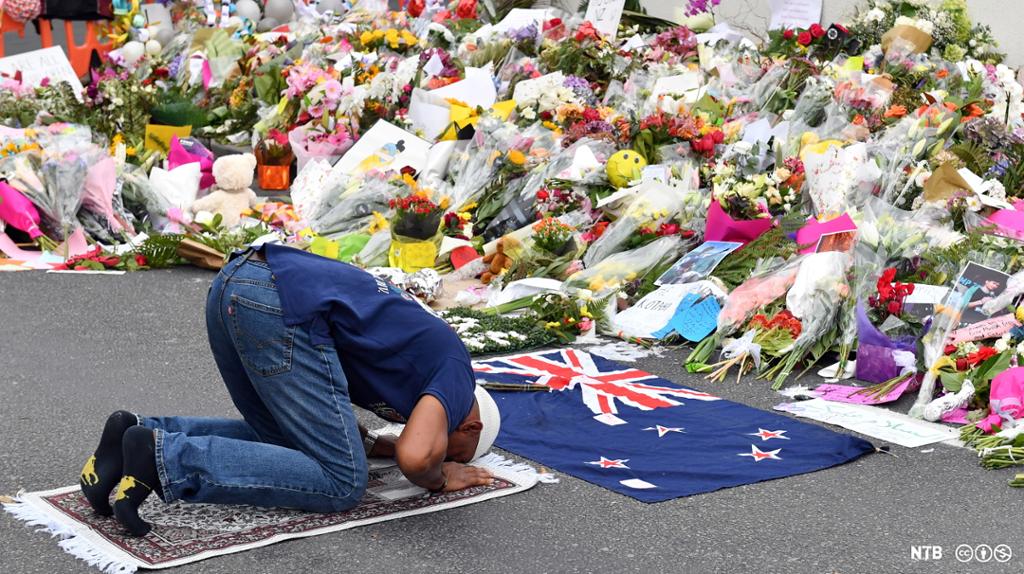Tasks: Christchurch Mosques Terror Attacks

What happened in Christchurch on 15 March 2019?
Why do you think Ardern said: 'He is a terrorist, he is a criminal, he is an extremist, but he will, when I speak, be nameless, and to others I implore you: speak the names of those who were lost rather than the name of the man who took them. He may have sought notoriety but we in New Zealand will give him nothing — not even his name.'
Ardern puts some of the blame for what happened on social media: find a passage in the speech that makes that clear.
Do you think Ardern is right when she states that social media is partly to blame for violent attacks like this?
After the attacks, Ardern promised changes to New Zealand's gun laws. What does she say about that in this speech?
Do you think stricter gun laws could have prevented the Christchurch Mosque shootings?
What is the main message of the speech?
Write a short text (500–600 words) where you comment on kairos and pathos in the speech.
Work in groups.
Choose one of the tasks. Share your findings in an audio recording or as a presentation.
Find out more about terrorism in New Zealand and another English-speaking country. What similarities and differences do you notice? How common is terrorism in English-speaking countries? Should we worry about terrorism when we visit these countries?
What is domestic terrorism? What reasons do citizens of English-speaking countries have when they become terrorists? Was the Christchurch shooter a domestic terrorist?
Jacinda Ardern has become a highly respected politician both within New Zealand and around the world. Find out more about her, her politics, and her path to becoming prime minister.
Read the quotations and discuss what they mean. Do you agree or disagree?
How to defeat terrorism? Don't be terrorized. Don't let fear rule your life. Even if you are scared.
― Salman Rushdie, Step Across This Line: Collected Nonfiction 1992–2002What separates us from the animals, what separates us from the chaos, is our ability to mourn people we’ve never met.
― David Levithan, Love Is the Higher LawWith guns you can kill terrorists, with education you can kill terrorism.
― Malala YousafzaiI've never met anyone who wanted to be a terrorist. They are desperate people.
― John Perkins
Terrorism isn't a crime against people or property. It's a crime against our minds, using the death of innocents and destruction of property to make us fearful. Terrorists use the media to magnify their actions and further spread fear. And when we react out of fear, when we change our policy to make our country less open, the terrorists succeed – even if their attacks fail. But when we refuse to be terrorized, when we're indomitable in the face of terror, the terrorists fail – even if their attacks succeed.
― Bruce Schneier
Source for the quotations: Goodreads 'Terrorism Quotes'. Link to list of quotations on the Goodreads' website
Relatert innhold
A ministerial statement made by PM Arden in the New Zealand Parliament on 19 March 2019, one week after the terrorist attack in Christchurch.